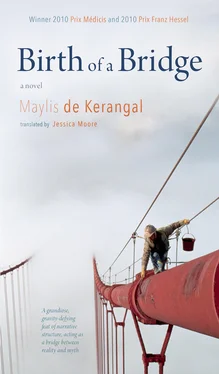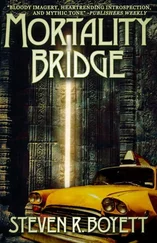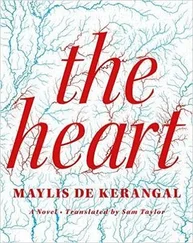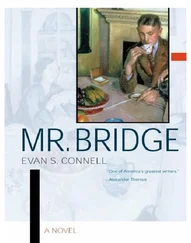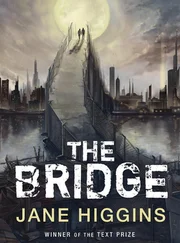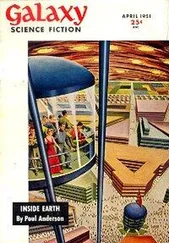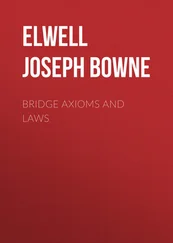IN COCA, what is now called the Dubai Trip creates a buzz. Its influence can be measured in the feverish urbanism that seizes the city. From then on the Boa is crystal clear about the single goal for his city council: put an end to three centuries of conservative prudence, once and for all get rid of the stranglehold of old money that reigns in the affluent downtown neighbourhoods, cut down the dynasties of the Cripplecrows and the Sandlesses that have been rubbing shoulders incestuously for the past two centuries, between satin sheets and plumes of cigar smoke — rather than being leaders of the city, they are masters over it. He wants to be done with their erudite conceit, their culture, their archives, too much Europe here, too much Europe, he repeats this time and again, heavy identity, sticky traditions: it stinks of death! He gets to work busting open the city centre, breaking its hard pit, its historical pit, pulverizing its meaning and scattering it to the periphery. The old buildings and bourgeois neighbourhoods, traces of the origins and symbol of the pioneers’ values — physical courage, a spirit of conquest, work, piety, monogamy, and all other qualities that glorify rootedness — are removed to museums: dust is what suits them best, sneers the Boa, his action is oriented elsewhere, out of range of patrimony, far from all the old fictions that begat the city plan. I’m going to air out all that. I’m going to free the city and put it on the world map. An era of grand manoeuvres follows, in which manila envelopes circulate containing wads of new bills that crinkle like biscuits.
In less than three months, the Boa manages to have Coca declared a free-trade zone by the Senate and twinned with Dubai; obtains, from the state bank — now under control of his own investment company — a loan at a low fixed rate for a large-scale city planning venture, and grants the municipality a lease of fifty years for each main facility. His private collusions in municipal projects alarm his shrewdest and most servile collaborators alike, but not one of them says a word and everyone knows why: the Boa presides over a fortress built on insider influence and he controls all the entrances and all the elevators, he is strong, rich, and not too concerned about the price one has to pay in order to remain in the good graces of the city’s respected institutions and organizations. Anywhere he can, he uses the tactics of the carnivorous reptiles he’s hunted since he was a child, and deploys such discreet strategies that only those who have a darkness to match his own can detect the long-term predatory power — these rare few, rendered speechless and weak, run for their lives — and then, buoyed up as he is by microscopic advantages that accumulate and activate one another, with the icy brutality that is his trademark, the Boa shifts without warning into attack mode and strikes. Those who might have tried to stand in his way are publicly mocked, dried up, simple-minded, sad. They don’t understand anything about the ways of the world. He’s sorry, but he eliminates them — what else do you expect, really, what do you want me to do? The implacable machine that’s running now at full throttle slowly suffocates them. After all, isn’t the Boa acting for the good of the city? Doesn’t he put himself entirely — himself, his companies, his screens, his men, his dogs — at the service of his fellow citizens? He has ideas for Coca — he was elected and he’s a man who keeps his promises: he is John the benefactor.
FROM THEN on, he commands the territory by ukase, walking slowly around the huge maquette of the city he’s had installed in the middle of his office — a general on a campaign planning strategies, that’s what he makes you think of — chest leaning over his scaled-down model, hands crossed behind his back, examining a portion of cardboard and then suddenly grabbing a wand and ordering an internet city here, a media city there, a shopping centre here — a maze of malls paved with porphyry and adorned with fountains and cappuccino kiosks — a multi-purpose stadium here, a skating rink in the shape of a flying saucer there, an underground multiplex with fifty rooms, a cinder track on the roof of a row of low-rise buildings, a casino under a glass bell. He wants transparency, plastic and polypropylene, rubber and melamine, all things provisional, consumable, disposable: everything must be mobile, light, convertible, and flexible. Supercharged, he devotes himself to the manipulation of giant Meccano that he reconfigures daily, intoxicated by the infinite scope of new formal possibilities, by the hubs he draws, by the work sites he carves out, by the activity centres he defines and positions on the map. He has only one idea left in mind: to pull Coca out of the provincial anonymity where it has been sleeping peacefully and convert it to the global economy. He wants to build the city of the third millennium, polyphonic and omnivorous, doped up on novelty, shaped for satisfaction, for pleasure, for the experience of consumption.
AND YET there’s something that wounds his pride: isolated as it is, Coca’s energy is rationed and dependent upon the coastal cities. The investors have fled for this very reason — it’s impossible to squeeze development out of a stingy little dump with a tight-assed population where spending is watched so closely. Moreover, the oil tankers that supply the city and its few industrial sites only come grudgingly up the river to the storage tanks downstream — the Boa sees condescension in this — isn’t he paying them cash, for Christ’s sake? He fulminates, mulls things over — alone at first, because he’s convinced that his people are incapable of coming up with a single idea. One evening a documentary on biofuel is on TV. It’s a revelation — he’s hooked by the subject and proceeds to study it in depth. Corn grows abundantly in the valley, and Coca has thousands of acres of preserves — the high red plains and the forest, whose edges could be cleared out, plus the interior of the massif if the Natives “play the game” — just don’t screw us over, that’s all I ask of them — this is how the Boa talks to himself. At the end of a brisk council meeting held at the beginning of March, he decides to convert the city to ethanol. An independent port will be constructed upstream at the oxbow in the river, a terminal with the capacity to hold ships of all tonnages and the corollary refineries. Fuelled thus, the city will export the surplus of energy to the coast, reverse the trend and shine at the forefront of global eco strategies. Coca, the green city! The Boa rubs his hands together, delighted with his coup, he’s done well. Now he just needs a bridge. A bridge by which they can enter the forest and reach the fertile valleys southeast of the mountain range, a bridge to connect the city to Ocean Bay.
The old Golden Bridge is in the crosshairs. The thing is narrow, it strangles traffic, causing irritation, middle fingers brandished through car windows, slowing the pace and putting business in peril. It doesn’t suffice. The Boa can’t even look at it anymore without flying into a rage. I want to be finished with the slow, the old, the broken down. I want it destroyed. I want it tossed in the trash, the rubbish; I want it to fall into decay, to be torn to shreds. Certain associations, however, are up in arms. Petitions circulate to save the bridge — it’s the soul of our city, a piece of our identity, it holds our memories — deploring the homogenization of cities, all the fast-food joints and clothing-store signs identical from Quito to Vladivostok, specificities of identity caving under capitalist pressure, globalization contaminating the tiniest bit of sidewalk and harmonizing every storefront. The Boa is dumbstruck — he hears but doesn’t understand, doesn’t see the problem, appeals to the desires of youth and modernity: enough! What a drag! What’s wrong with wanting to move forward? And anyway the old bridge is falling into ruin and the river beneath its piers is dark, putrid. Rust wreaks a toxic leprosy on the beams and girders, the wood of the deck is cracking, you can feel it move. The Natives ended up colonizing the little covered stalls lining the bridge deck, tiny little alcoves where they coagulate for entire days, heaped together smoking or half-heartedly selling all kinds of jewellery, charms, pipes, trinkets. Little pieces of crap for little budgets, thinks the Boa: I want it gone.
Читать дальше
